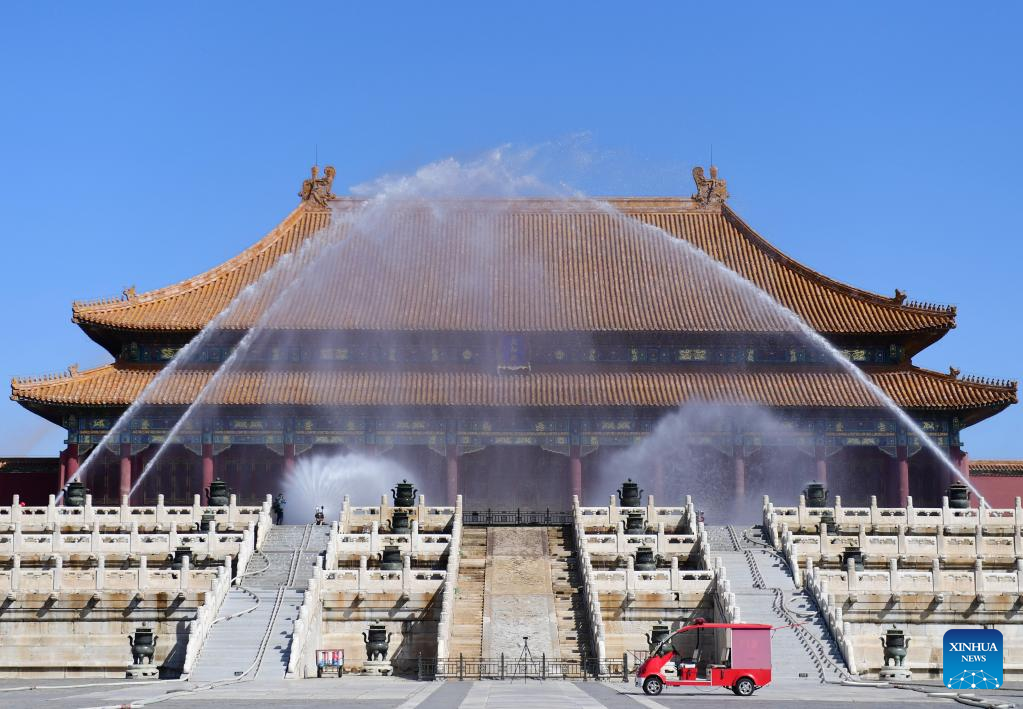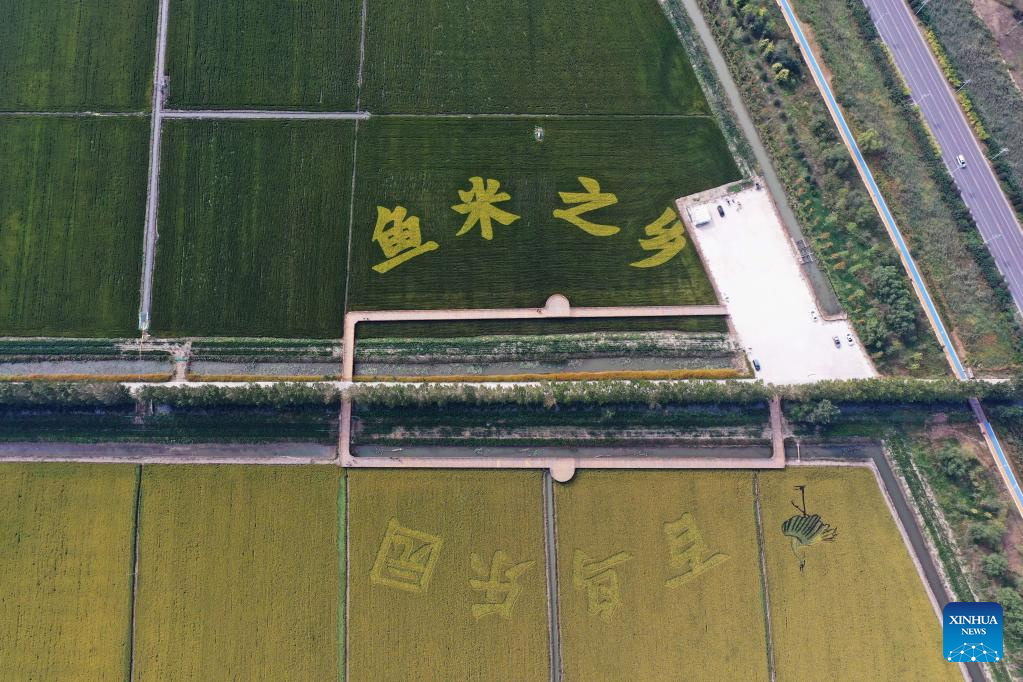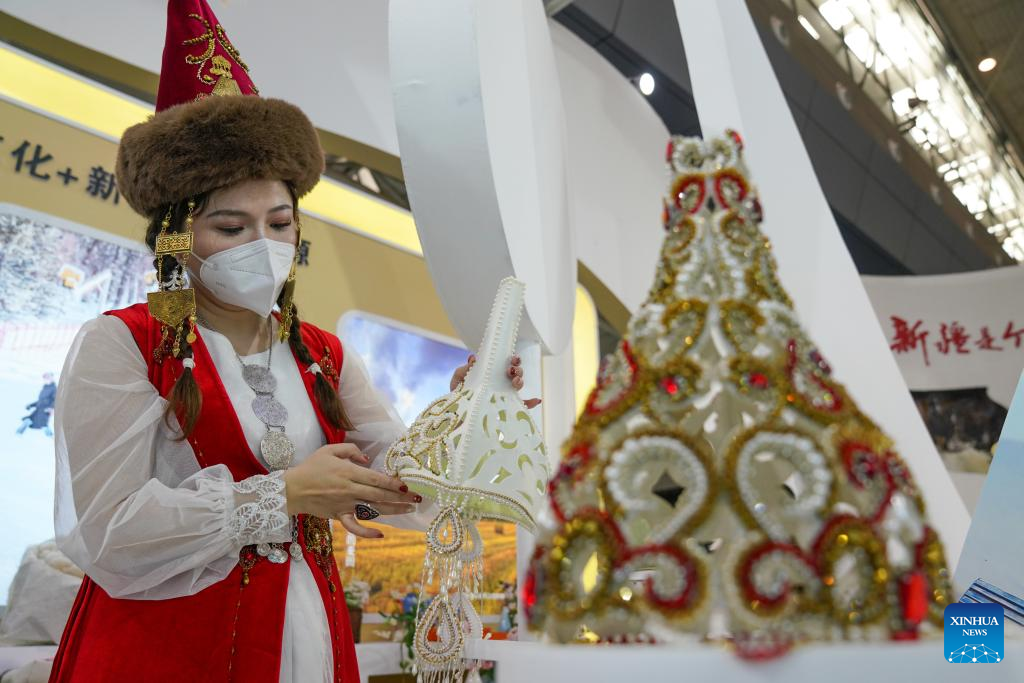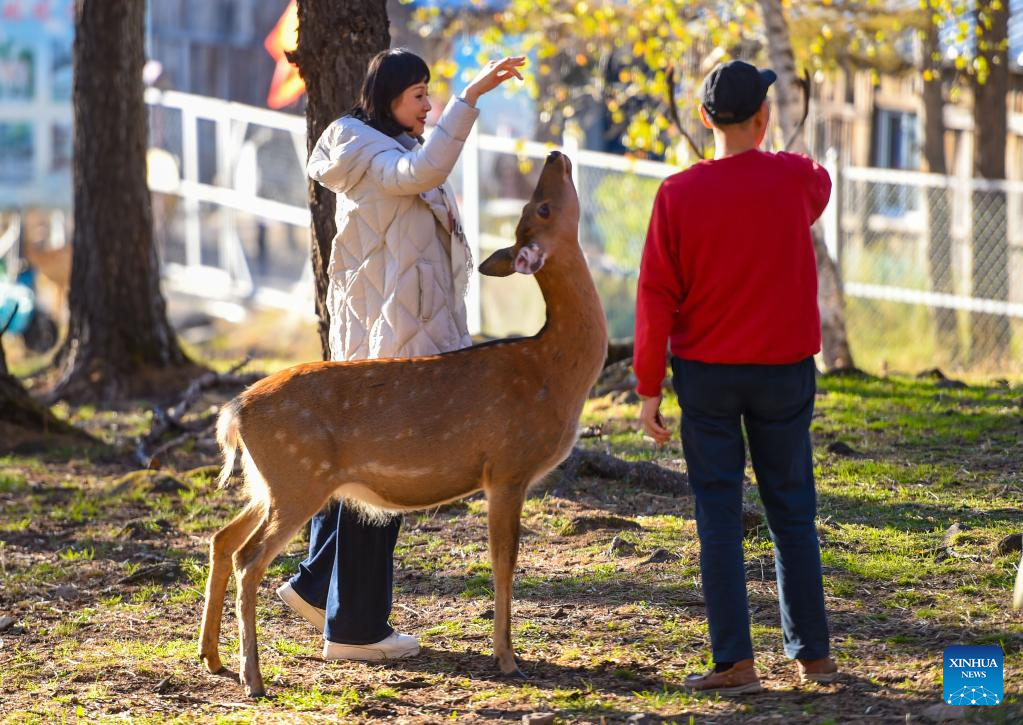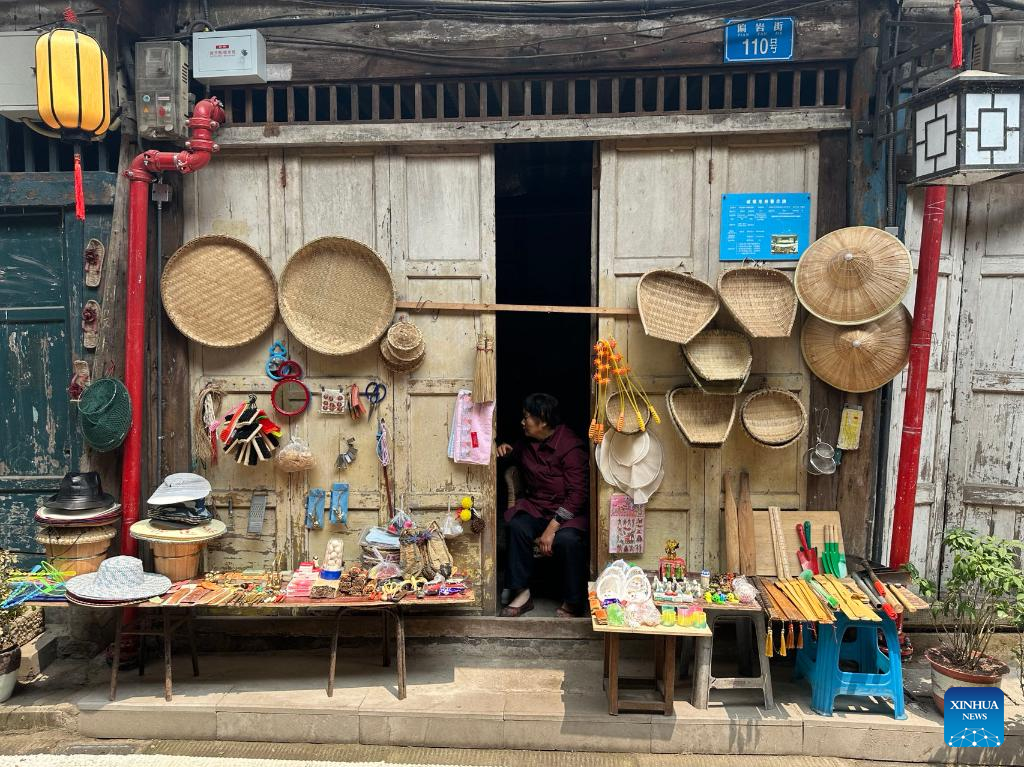
This photo taken on April 12, 2023 shows a roadside store in Pianyan ancient town, Beibei District, southwest China's Chongqing Municipality.(Xinhua/Chen Qingbing)
CHONGQING, May 8 -- Adam Mahmood's story in search of "Ren," a traditional Chinese philosophy of benevolence advocated by ancient Chinese educator and philosopher Confucius, begins in the hustle and bustle of Chongqing, a southwestern Chinese metropolis.
Mahmood was one of the dozens of foreign filmmakers who participated in a documentary-making activity held by Southwest University recently. The activity aims to help young directors experience the charm of China's excellent traditional culture. What Mahmood focused on during the trip to Chongqing is "Ren," a key idea in the thoughts of Confucius.
"Prior to this journey, I have learned a little about the Chinese traditional culture of 'Ren,'" said Mahmood, the 23-year-old British national.
After taking a few hours by bus, Mahmood and his film shooting partner arrived at their final destination -- Pianyan ancient town, Beibei District of Chongqing Municipality. Tucked away in deep mountains, the town bears a history of over 300 years.
After a spring rain, birds were chirping on the local centuries-old trees while the tree leaves fell gently onto roofs of nearby old residential buildings and covered part of the stone walkways. Following the streams winding through the sleepy town, Mahmood and his partner curiously observed the surroundings with mud on their pants and shoes.
"I believe the residents here were more able to show me the culture of Pianyan than the architecture of the old town," said Mahmood as he began his visits to local residents.
Pianyan is known for its intangible cultural heritage, Tangmen Caizha, which dates back to the Qing Dynasty (1644-1911). The old craft mainly integrates handcrafts, traditional calligraphy, and paintings as well as engraving arts.
Tangmen Caizha's artworks are all structured with bamboo strips. Local craftsmen paste paper on the structures, draw vivid colors and then attach various kinds of adornments on them. The finished products were used for dragon or lion dances and parades on important festive occasions in ancient times.
Tang Qiantai, 80, is a fourth-generation inheritor of the old craft. The senior master now volunteers to teach children in order to better preserve and revive the craft.
Thanks to Tang's efforts, the Tangmen Caizha has drawn more attention over recent years, becoming a major magnet for visitors to the ancient town. During the first seven months of 2022, over 520,000 tourists were received by the Jindaoxia scenic area, which includes the ancient town, up 85 percent year on year.
Deeply touched by Tang's spirit, Mahmood speaks highly of Tang and deems the master's efforts as a vivid image of "Ren" culture. The filmmaker even experienced the handcraft making and dragon dance himself, trying to comprehend the essence of "Ren."
Apparently, the foreigner underestimated the great difficulties of grasping the craft. "My arms ached from long hours of holding the dragon's head in the blazing sun. And I realized that dragon dance was not easy even for a young man like myself," said Mahmood.
After days of practicing the performance, Mahmood had his debut show on a sunny day, dancing with the local dragon dance team for the residents. Rounds of applause that burst from the audience spoke volumes about the success of their performance.
Mahmood recorded the whole process through his lens. The finished film was named "The Dance of 'Ren'" by him, as he began to realize the rich connotation of traditional Chinese culture and philosophy.
"The spirit of 'Ren' is not only a human trait, but also a culture that has been precipitated by thousands of years of history," said the man. "It's not only the insistence on heritage in Master Tang, but also the spirit of selflessness and dedication of Tang and friendliness of all the people in the town."

